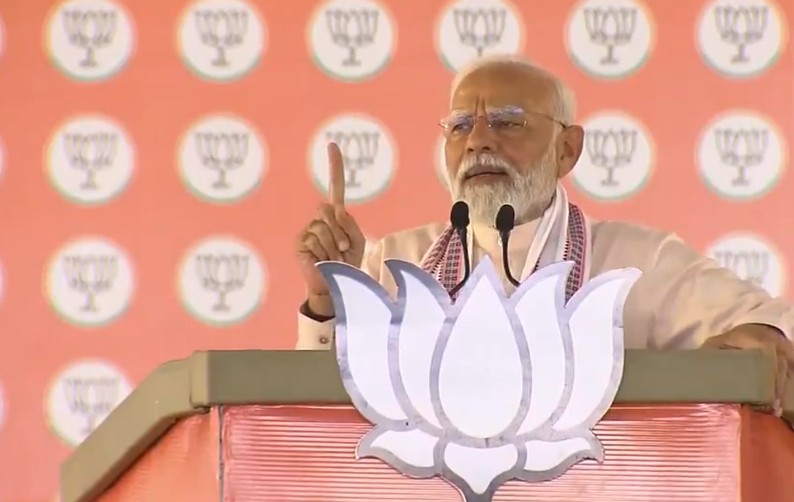Prime Minister Narendra Modi, while addressing the Vijay Sankalp Rally in Morena, Madhya Pradesh, delivered a scathing criticism of the Congress party’s purported disregard for national interests, contrasting it with the Bharatiya Janata Party’s (BJP) commitment to the nation’s welfare.
In a fervent speech, Modi asserted, “Nothing is greater than the country for BJP. But for Congress, it is family first.” He accused the Congress of prioritizing familial interests over the well-being of the nation, alleging that individuals who made significant contributions, hard work, and dedication to the country were sidelined by the party.
Modi specifically highlighted the issue of One Rank-One Pension (OROP), citing it as an example of the Congress’ alleged negligence towards the demands of army personnel. He claimed, “Congress’ policy is to keep the one who makes the maximum contribution, hard work, and dedication for the country at the back.” Modi emphasized that upon assuming office, his government swiftly implemented the OROP scheme, fulfilling a longstanding demand of the armed forces.
The Prime Minister’s remarks at the Vijay Sankalp Rally not only underscored the ideological differences between the BJP and Congress but also served as a reminder of the BJP’s unwavering commitment to addressing the needs and aspirations of the nation’s defense personnel.
The Vijay Sankalp Rally, a pivotal component of the BJP’s political campaign strategy, provides a platform for leaders to rally support for the party’s policies and ideologies while simultaneously critiquing the opposition.
Modi’s address is expected to ignite political discussions and debates, particularly regarding the contrasting priorities of the BJP and Congress. As political temperatures rise, citizens will closely scrutinize the developments and responses from opposition quarters, especially concerning issues related to national security and welfare.
The Prime Minister’s impassioned rhetoric not only energizes the party base but also reinforces the BJP’s narrative of governance centered on national interest and development. With elections looming, such sharp critiques are poised to shape the contours of political discourse in the days ahead.



